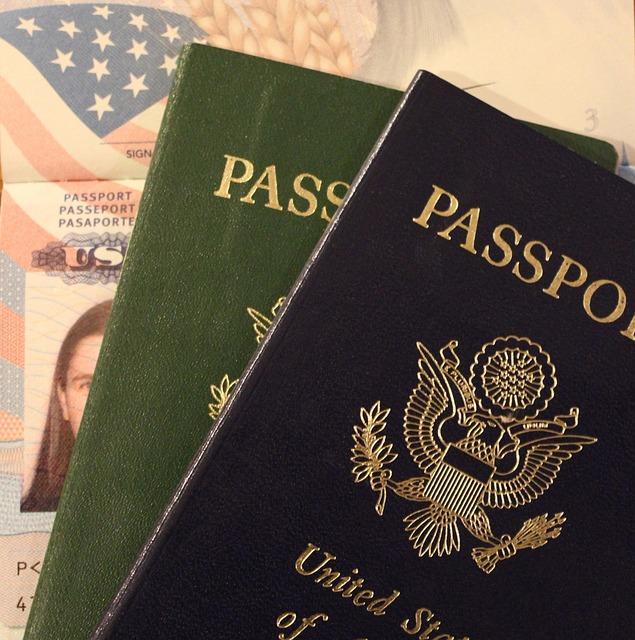Bruxism, the dreaded teeth-grinding habit that affects millions. Discover effective strategies to combat it and bid farewell to sleepless nights!
1. Understanding Bruxism: The Basics of Teeth Grinding and Clenching
Bruxism, commonly known as teeth grinding or clenching, is a condition that affects many individuals. Understanding the basics of this condition can help you recognize and address the symptoms effectively.
Here are some essential points to understand about bruxism:
- Common occurrences: Bruxism can occur during the day or at night while you sleep.
- Potential causes: It can be caused by various factors such as stress, anxiety, misaligned bite, or sleep disorders.
- Signs and symptoms: Although it might go unnoticed, common signs include jaw pain, headaches, tooth sensitivity, worn enamel, and disrupted sleep.
- Diagnosis and treatment: A dentist can diagnose bruxism by examining your teeth and jaws. Treatment options include using a mouthguard, stress management techniques, behavior therapy, and addressing the underlying causes.
By familiarizing yourself with the basics of bruxism, you can take proactive steps to protect your teeth and seek appropriate treatment if necessary.
2. Identifying the Causes of Bruxism: Unraveling the Triggers Behind Teeth Grinding
Bruxism, commonly known as teeth grinding, can have various underlying causes. By understanding the triggers behind this condition, we can take effective measures to address and manage it. Here, we delve into the primary factors that contribute to bruxism:
- Stress and Anxiety: High levels of stress or anxiety can act as significant triggers for bruxism. The subconscious response to these emotional states often manifests as grinding or clenching of teeth, especially during sleep. Identifying and managing stressors can go a long way in preventing bruxism.
- Malocclusion: Misalignment of teeth, also known as malocclusion, can lead to bruxism. When upper and lower teeth do not fit together properly, the jaw muscles may compensate by grinding or clenching. Orthodontic treatments, such as braces or dental adjustments, can help address this cause of bruxism.
- Sleep Disorders: Certain sleep disorders like sleep apnea or snoring can contribute to teeth grinding. Disrupted sleep patterns and abnormal breathing can impact muscle function, leading to bruxism. Treating underlying sleep disorders can effectively alleviate bruxism symptoms.
By effectively identifying and addressing the root causes of bruxism, individuals can take proactive steps to mitigate this condition’s effects. It is advisable to consult a dental professional or healthcare provider for an accurate diagnosis and personalized treatment plan.
3. Unveiling the Common Symptoms: How to Recognize if You are a Bruxer
If you often wake up with jaw pain, headaches, or worn-down teeth, there’s a high chance you might be experiencing bruxism. Bruxism, commonly known as teeth grinding, is a condition that affects millions of people worldwide. By identifying the common symptoms, you can take the necessary steps to address this issue and protect your oral health.
Here are some key signs that indicate you might be a bruxer:
- Teeth sensitivity: If you find yourself experiencing heightened sensitivity in your teeth, such as discomfort while eating or drinking hot or cold substances, it could be a result of teeth grinding.
- Frequent jaw pain or tightness: Bruxism often leads to jaw muscle fatigue and tension, causing recurring discomfort, pain, or even difficulty opening or closing your mouth properly.
- Headaches: Frequent tension headaches are another common symptom of bruxism. The excessive pressure on your jaw and skull can manifest as recurring headaches, particularly upon waking up in the morning.
- Worn-down teeth: If your teeth appear flattened, fractured, or unevenly worn, this may indicate bruxism. Grinding or clenching can erode the protective enamel layer, exposing your teeth to various oral health issues like cavities and increased sensitivity.
- Disrupted sleep: Teeth grinding often occurs during sleep and can be loud enough to wake your partner. If you notice complaints about teeth grinding noises or find yourself frequently waking up during the night, it’s worth investigating the possibility of bruxism.
If you identify with any of these symptoms, it is recommended to consult a dental professional for further evaluation. They can provide an accurate diagnosis and recommend appropriate treatment options to help alleviate your discomfort and safeguard your long-term oral health.
4. The Impact of Bruxism on Oral Health: Why Taking Action is Crucial
Bruxism, commonly known as teeth grinding, can have a significant impact on oral health. It is crucial to understand the consequences of this condition and take action to prevent further damage. Here’s why:
- Wear and tear on teeth: Bruxism can lead to excessive enamel erosion and tooth damage over time. The constant grinding and clenching put excessive pressure on the teeth, causing them to wear down and become more vulnerable to decay.
- Jaw pain and headaches: The constant strain on the jaw muscles from bruxism can result in chronic jaw pain and tension headaches. These discomforts can affect daily life and lead to even more serious issues if left untreated.
- TMJ disorders: Bruxism is also closely linked to temporomandibular joint (TMJ) disorders. The excessive pressure and movement can cause the TMJ to become misaligned, resulting in pain, clicking, and difficulty opening and closing the mouth.
- Sleep disturbances: Bruxism often occurs during sleep, which can disrupt your sleep quality and that of your partner. The loud grinding noises can be bothersome and may even awaken you or your loved ones during the night.
- Gum recession and sensitivity: The continuous pressure and movement associated with teeth grinding can cause the gums to recede and expose the tooth roots. This can lead to increased tooth sensitivity, as well as an increased risk of gum disease.
By taking action to address bruxism, such as wearing a nightguard or addressing potential underlying causes, you can protect your oral health and prevent further damage. It is essential to consult with a dental professional who can provide guidance and recommend appropriate treatment options tailored to your specific needs. Don’t wait until it’s too late – take action now to preserve your oral health!
5. Exploring Strategies for Bruxism Prevention: Expert Tips and Techniques
Bruxism, or teeth grinding, can cause significant damage to your dental health. Thankfully, there are various strategies and expert tips available to help prevent this condition. By implementing these techniques, you can safeguard your teeth and improve your overall oral well-being.
1. Stress management: One of the leading causes of bruxism is stress and anxiety. Consider incorporating stress management techniques into your daily routine, such as meditation, deep breathing exercises, or engaging in relaxing hobbies.
2. Nightguards: Wearing a nightguard while sleeping reduces grinding and protects your teeth from excessive wear. These custom-fit oral appliances provide a protective barrier, diminishing the impact of bruxism on your teeth and jaw muscles.
3. Avoid stimulating substances: Certain substances like caffeine and alcohol can exacerbate bruxism. Limit your intake of these substances, especially in the evening, to reduce the likelihood of teeth grinding during sleep.
4. Jaw exercises: Strengthening and stretching your jaw muscles can help alleviate bruxism. Consult with your dentist or physical therapist for specific exercises and techniques that can loosen tight muscles and promote relaxation.
5. Positional therapy: Experimenting with different sleeping positions can aid in preventing bruxism. Try sleeping on your back or using additional pillows for support, as certain positions can minimize pressure on your jaw and reduce the likelihood of grinding.
6. Nighttime Solutions: Discovering Effective Methods to Stop Grinding While You Sleep
Grinding your teeth at night, also known as bruxism, can be a frustrating and potentially harmful habit. Fortunately, there are several effective methods to help you put an end to teeth grinding during sleep. Here are some tried and tested nighttime solutions to help you find relief:
Mouthguards: One of the most commonly recommended solutions for teeth grinding is the use of a mouthguard. These custom-fitted devices are worn over your teeth to protect them from the grinding action. They provide a cushioning effect, preventing further damage to your teeth and jaw. Mouthguards can be obtained from your dentist, and there are also over-the-counter options available.
Stress Management: Stress and anxiety are often linked to teeth grinding. Managing stress can go a long way in reducing this habit. Incorporating stress-relieving practices into your daily routine, such as meditation, deep breathing exercises, or even counseling, can help relax your mind and body, minimizing the likelihood of teeth grinding during sleep.
Lifestyle Changes: Certain lifestyle changes can also contribute to alleviating bruxism. Avoiding stimulating substances such as caffeine and alcohol close to bedtime can reduce the likelihood of teeth grinding. Additionally, establishing a regular sleep schedule, practicing good sleep hygiene, and creating a relaxing bedtime routine can promote better sleep and reduce the chances of grinding your teeth at night.
7. Stress Management: Addressing the Psychological Factors Contributing to Bruxism
Bruxism, commonly known as teeth grinding, is often associated with psychological factors such as stress and anxiety. Addressing these psychological factors can play a crucial role in managing and reducing bruxism. Here are some important points to consider:
- Identify the triggers: By identifying and becoming aware of the situations or events that trigger stress and anxiety, you can better manage your bruxism. Keep a journal to track these triggers and analyze patterns.
- Practice relaxation techniques: Engaging in relaxation techniques can help alleviate stress and anxiety. Consider incorporating practices such as deep breathing exercises, meditation, yoga, or mindfulness into your daily routine.
- Seek professional help: If your bruxism is significantly impacting your quality of life, it may be helpful to consult with a mental health professional. They can provide valuable guidance and support in addressing the psychological factors contributing to your bruxism.
- Healthy lifestyle choices: Maintaining a healthy lifestyle can positively impact your psychological well-being. Ensure you are getting enough sleep, exercising regularly, consuming a balanced diet, and minimizing the use of alcohol, caffeine, and tobacco.
Remember, managing stress and addressing the psychological factors underlying bruxism requires a comprehensive approach. By implementing these strategies, you can take important steps towards reducing the frequency and intensity of teeth grinding, and improving your overall well-being.
8. Dental Approaches: Professional Treatments for Bruxism and Their Effectiveness
When it comes to addressing bruxism, there are several professional dental treatments available that can effectively alleviate symptoms and prevent further damage. Here are some of the most common approaches:
- Dental Splints or Mouthguards: Custom-made dental splints or mouthguards are often prescribed to bruxism patients. These devices create a barrier between the upper and lower teeth, preventing direct contact and reducing tooth grinding and clenching.
- Biofeedback: This technique involves monitoring muscle activity in the jaw using electrical sensors. By providing real-time feedback, biofeedback helps patients become more aware of their clenching and grinding habits, enabling them to consciously relax their jaw muscles.
- Medication: In some cases, medication may be prescribed to manage bruxism symptoms. Muscle relaxants can reduce facial muscle tension, while anti-anxiety drugs can help alleviate stress-related grinding and clenching. However, medication is often considered a short-term solution and should be used under professional supervision.
It’s important to note that the effectiveness of these dental treatments can vary depending on the severity of the bruxism and individual factors. Your dentist will evaluate your specific situation and recommend the most suitable approach for you. Additionally, lifestyle changes, stress management techniques, and relaxation exercises can supplement these treatments and enhance their effectiveness in managing bruxism.
9. Lifestyle Modifications: Simple Changes that Can Make a Big Difference in Bruxism Management
When it comes to managing bruxism, making simple lifestyle modifications can have a significant impact on alleviating the symptoms. Here are a few changes that can make a big difference:
- Stress reduction: Bruxism is often linked to stress and anxiety. Engaging in stress-reducing activities such as meditation, yoga, or deep breathing exercises can help relax your mind and body, reducing the likelihood of teeth grinding.
- Avoiding stimulating substances: Certain substances like caffeine and alcohol can exacerbate bruxism. Limiting or avoiding these stimulants, especially close to bedtime, can minimize grinding during sleep.
- Creating a bedtime routine: Establishing a relaxing bedtime routine can signal your body to wind down before sleep. Consider activities like reading a book, taking a warm bath, or listening to soothing music to prepare your body for a restful night’s sleep.
- Using a mouthguard: If you grind your teeth primarily at night, a custom-fitted mouthguard can provide a protective barrier between your upper and lower teeth. This can help prevent damage to your teeth and alleviate symptoms associated with bruxism.
By incorporating these lifestyle modifications into your daily routine, you can take control of your bruxism management and experience relief from the discomfort it may cause.
10. Long-term Outlook: Maintaining Good Oral Health After Bruxism Resolution
After successfully resolving bruxism, it is essential to maintain good oral health to minimize the risk of recurrence. Here are some key strategies to help you keep your teeth and gums healthy:
- Continue with regular dental visits: Schedule regular check-ups every six months with your dentist to ensure any potential issues are addressed promptly. Your dentist can provide professional cleanings and monitor your oral health.
- Establish a consistent oral hygiene routine: Brush your teeth twice daily with a soft-bristled toothbrush and fluoride toothpaste. Don’t forget to floss at least once a day to remove plaque and food particles from between your teeth.
- Monitor stress levels: Stress can contribute to teeth grinding and clenching. Practice relaxation techniques like deep breathing, meditation, or yoga to manage stress effectively.
In addition to these steps, it’s important to be aware of any signs of bruxism recurrence. If you notice jaw pain, increased tooth sensitivity, or a return of worn-down tooth surfaces, consult your dentist immediately. By being diligent in maintaining good oral health practices and managing stress, you can help ensure that your teeth remain healthy and prevent bruxism from returning.
In conclusion, managing bruxism requires a multi-faceted approach. Incorporating stress reduction techniques, wearing a mouthguard, and seeking professional help can alleviate symptoms. Remember, early intervention is key in stopping bruxism and protecting your oral health!




